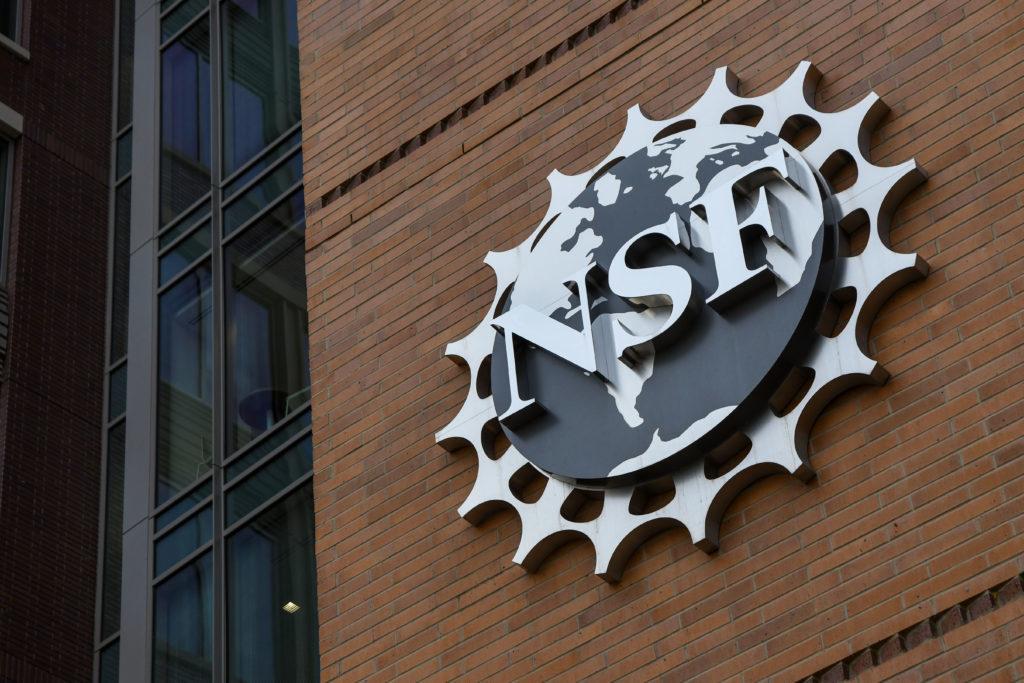A 4-year-old entrepreneurship program is getting a D.C. twist.
The Innovation Corps, a program that helps researchers commercialize products, will expand its Accelerate D.C. program this month, which will give $25,000 grants to eight startup teams from the D.C. community and mid-Atlantic region that are not involved with GW. Officials said the new venture will widen the focus of I-Corps, a program that has traditionally helped faculty researchers market products from golf ball designs to water quality tests in regional sites around the country.
The new grants are an opportunity for the program to take its services to the wider community, raising its profile in the District’s startup community and helping local entrepreneurs take their ideas to the marketplace, officials said. The National Science Foundation, which runs I-Corps, gave additional funding to the University last fall to fund the new program.
The D.C. node, or regional site of the I-Corps program, trains and funds faculty, staff and students who are trying to market new technology by hosting “boot-camps.” It is one of six I-Corps programs now supporting non-academic-affiliated startups.
Though the program has worked with community inventors and researchers in the past, director Dan Kunitz said when the program received additional NSF funding last fall, it was the first opportunity the program had to involve community startups directly in the program.
“There’s great value in getting our students and our researchers working within the community,” he said. “Part of the philosophy of our program is to gather data and learn from stakeholders in the broader ecosystem and to understand the problems in the real world.”
During the boot camp, Kunitz said entrepreneurs, just like all I-Corps participants will attend training courses on how to market and sell their products. The first boot camp starts Jan. 23 at GW, and applicants have been accepted on a rolling basis since December. The University called for interested startups to apply to the program in a release earlier this month.
Kunitz said the initial program will work with more than eight teams, but at the end of the series of two-week boot camps in April, eight will be chosen to receive the full $25,000 grant for their ideas.
Once the eight are chosen, they will move up to the national level of I-Corps to participate in seven week-long training programs that provide additional training and networking opportunities.
The program hired a new administrator, Dave McCarthy, to oversee the new Accelerate D.C. program last month, Kunitz said.
McCarthy, the associate director of I-Corps at GW who has worked in the startup community in D.C. for the last 25 years, said it can sometimes be a world full of “hucksterism,” where companies try to take advantage of fledgling businesses by offering their services in exchange for a stake in the company – and then refuse to honor their end of the bargain.
But the new project will avoid those pitfalls, he said, because GW is trusted and the grants will give startups the training and financial resources they need without having to give away part ownership of their business. But he said getting the word out to those startups can be difficult and the program may reach into some communities for the first time.
The program is looking for a well-built team just as much as a good idea, McCarthy said. McCarthy said the teams will have primarily a research background because it’s difficult to teach technology to business-minded individuals.
“All geeks are welcome,” McCarthy said. “We’re trying to take technology researchers and coach them up on how to be an entrepreneur.”
Last fall, the program received additional funding to give faculty and staff who were accepted into the program $3,000 for the regional training program. In 2016, the government doled out more than $3 million to renew the D.C. I-Corps node, which started in 2011.
Kurt Becker, a co-principal investigator at the I-Corps program in New York City, where funding will also be provided for startups not affiliated with a university, said funding outside startups can offer long-term opportunities to its students if the business is successful down the road.
Many startups have come up with their own technology that may not have come from an academic setting, but he said it’s often expensive to get the kind of training needed to get their products on the market.
“It adds a new dimension the kind of people that the regional node can actually reach out to and bring into the innovation economy,” Becker said.
Suresh Garimella, the primary investigator at the Midwestern “node” of the I-Corps program at Perdue University, said his region is also supporting non-academic startups that contribute to the local economy.
“The development and application of advances in science and technology will benefit from contributions of non-academic institutions,” he said.





